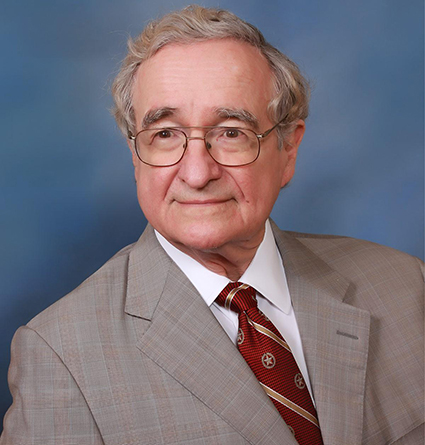
Tony's
3755 Richmond Ave.
Houston, TX 77046
December 15, 2022
11:30 AM - 1:00 PM
HALL OF FAME LIMELIGHT: HARRY REASONER
By Katrina Dewey | May 31, 2022 | Lawyer Limelights
He’s been a “Billion-dollar Lawyer” for more than three decades, spent time as a clerk to Judge Charles Clark and Judge Thurgood Marshall on the 2nd U.S. Circuit Court of Appeals. He made a massive impact on antitrust, energy and commercial law in Texas and throughout the U.S.
But what Harry Reasoner would rather discuss as he nears his 60th year of practice are his pro bono matters – from individual child custody cases, to winning the right for prisoners to write confidentially to their lawyers and get books and magazines, to the right of the University of Texas Law School to use race as a factor in admission.
He’s passionate about his work in Guajardo v. Estelle, which resulted in a settlement overseen by the U.S. District Court in Houston that survived for roughly 30 years, granting Texas prison inmates the right to obtain books and magazines and correspond confidentially with their attorneys as well as news reporters.
“One area of our society that could greatly stand improvement is our prisons,” says Reasoner. “We don’t do enough to rehabilitate. You ought to make it so that kids who get there come out with high school degrees.”
Reasoner made partner six years after joining Vinson & Elkins' Houston office. He won a verdict of $1B in 1989 in an antitrust battle over a proposed coal-slurry pipeline and would go on to serve as managing partner for 10 years, 1992 through 2001.
While in that role, he agreed to represent the University of Texas School of Law, where he had earned his juris doctorate decades before, in a lawsuit by Cheryl Hopwood and other white applicants claiming that the institution discriminated against them in favor of Black and Latino candidates.
Reasoner’s client prevailed, at least in the early stages of Hopwood v. Texas. In 1994, U.S. District Judge Sam Sparks ruled in the school’s favor, determining that under Bakke v. Regents of University of California, the school could consider race either to keep a diverse student body or to remedy past discrimination.
“We had a great trial judge,” Reasoner recalls. “He gave both sides a full and fair hearing.”
Two years later, however, the 5th U.S. Circuit Court of Appeals in New Orleans reversed, declaring that using race as a factor in admissions was unconstitutional.
In the aftermath, Texas responded with the passage of House Bill 588, a law signed by then-Gov. George W. Bush that promised a spot in state-funded universities to Texas high school students in the top 10 percent of their classes.
“The political theory was, ‘Well, they would at least get some minorities that way,’ which they did,” Reasoner says, “but it was an awkward approach.”
Just seven years later, in a 5-4 decision authored by then-Justice Sandra Day O’Connor, the Supreme Court overturned Hopwood in a decision on a Michigan case that found the constitution’s Equal Protection Clause didn’t prohibit considering race in college admissions.
Even before that outcome, though, Reasoner was happy that Vinson & Elkins had joined the fight on behalf of his alma mater.
“I thought it was important to the faculty of the law school and the university that a major business law firm like Vinson & Elkins recognized that they were doing the right thing, and it was good for our society,” he says.